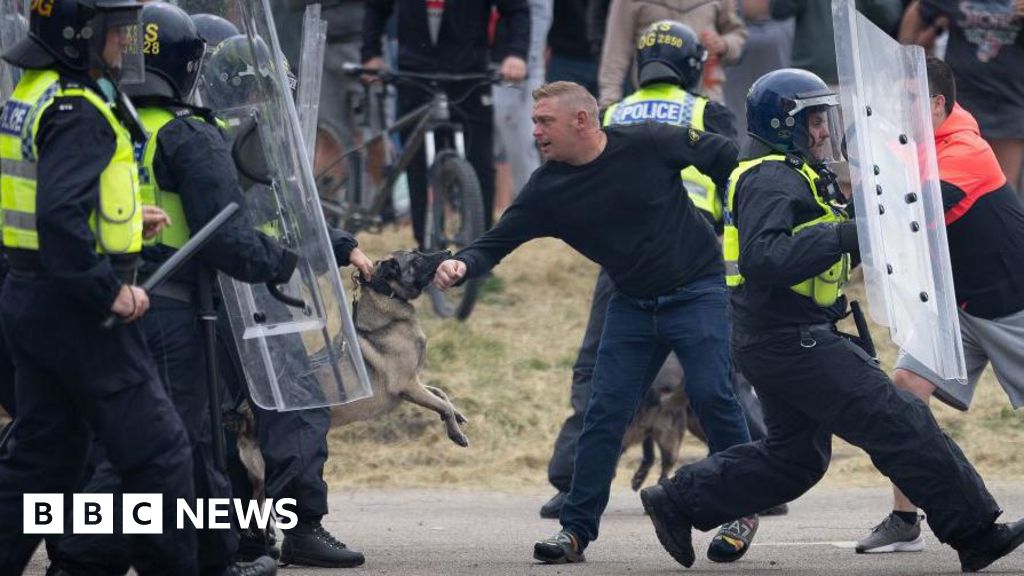The government has defended the media regulator’s response to the unrest in the UK, saying it has made clear social media companies should act over their role in the crisis.
Ofcom has published an open letter to the platforms saying they should not wait until it gets enhanced powers under the Online Safety Act before taking action.
Policing minister Dame Diana Johnson agreed, saying tech firms “have an obligation now” to “deal with” material that incites violence.
Critics, though, say a tougher approach is needed.
“Online misinformation is a clear and present danger spilling across into unrest on UK streets in real-time”, said Azzurra Moores, from fact-checking organisation Full Fact.
“We can’t afford to wait weeks and months for bolder, stronger action from Ofcom and the government.”
Speaking on Today, on BBC Radio Four, Dame Diana left open the possibility of revisiting the Online Safety Act, which is due to come into force early next year.
“Of course the events of the last few days have meant that we need to look very carefully at what more we can do.”
She also said a possible plan to ban convicted rioters from football matches is “being looked at”.
Dame Diana said she believed football, rugby and other sports clubs “do not want to have people who have caused such violence and disorder in their communities on their stands at the weekend”.
The role that social media is playing in the disorder being seen in England and Northern Ireland is coming under increasing scrutiny,
The government said on Wednesday social media platforms “clearly need to do far more” after it emerged a list purporting to contain the names and addresses of immigration lawyers was being spread online.
The Law Society of England and Wales said it was treating the list as a “very credible threat” to its members.
Telegram, where the list appears to have originated, told the BBC its moderators were “actively monitoring the situation and are removing channels and posts containing calls to violence”. It said such “calls to violence” were explicitly forbidden in its terms of service.
Earlier this week, the prime minister became embroiled in an online spat with Elon Musk, after the tech billionaire responded to the disorder by writing on X that “civil war” in the UK was “inevitable.”
In its open letter, Ofcom acknowledged there was an “increased risk” of the sites being used to “stir up hatred” and “provoke violence”.
It added that under existing regulations, video-sharing platforms such as TikTok and Snap “must protect their users from videos likely to incite violence or hatred”.
But many platforms which allow people to upload video – such as YouTube and Elon Musk’s X – do not need to follow these rules.
Prof Lorna Woods, of the University of Essex, who helped shape the Online Safety Act, said Ofcom was “in a difficult place”, because of the need to wait for its enhanced powers.
She also pointed out even the new legislation had its limitations.
“If the Act were fully in force, it wouldn’t catch all the content,” she told the BBC.
“So while organising a riot would be caught, some of the dog whistling tactics and disinformation would not be.
“This was a concern from the last Government not to regulate non-criminal speech where adults were concerned.”

